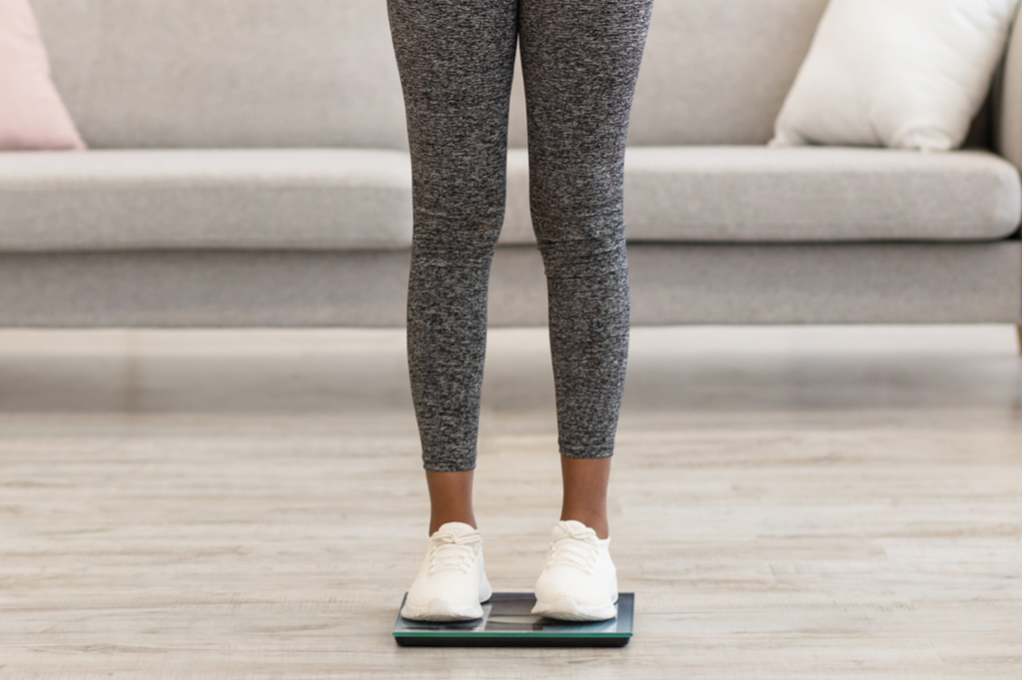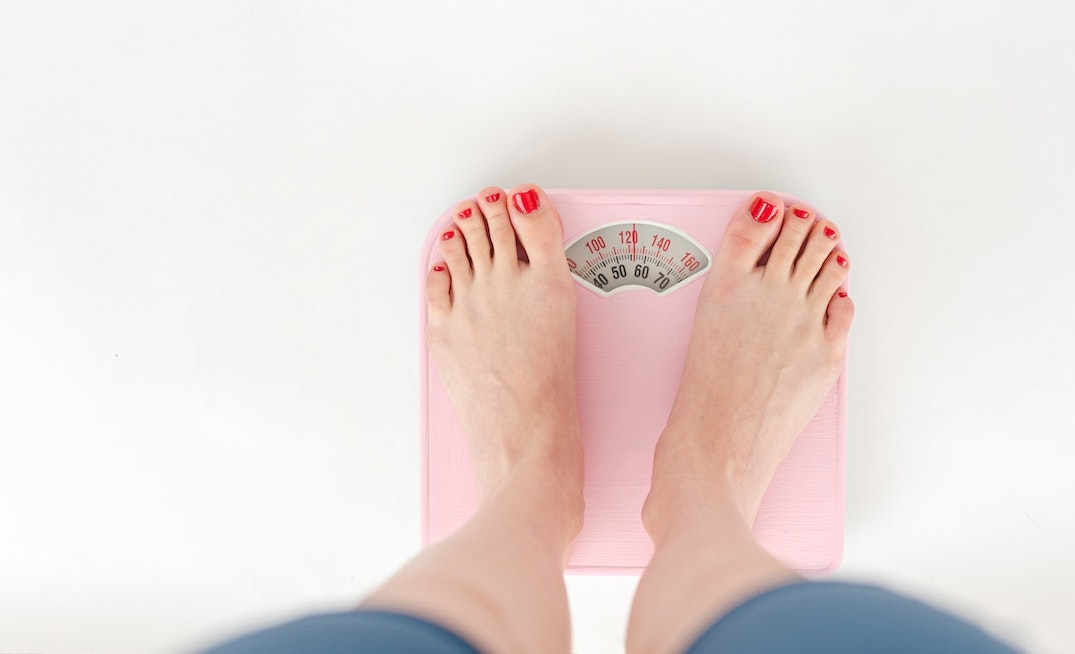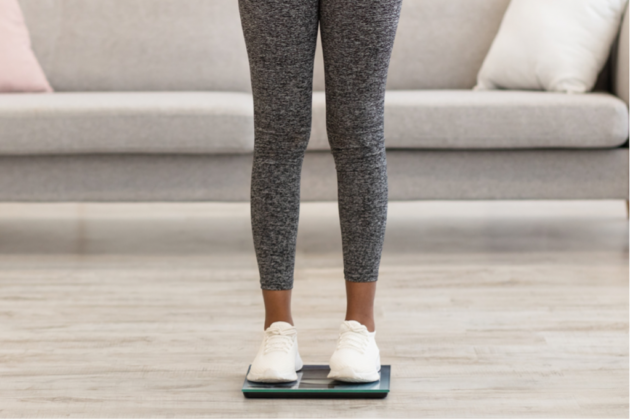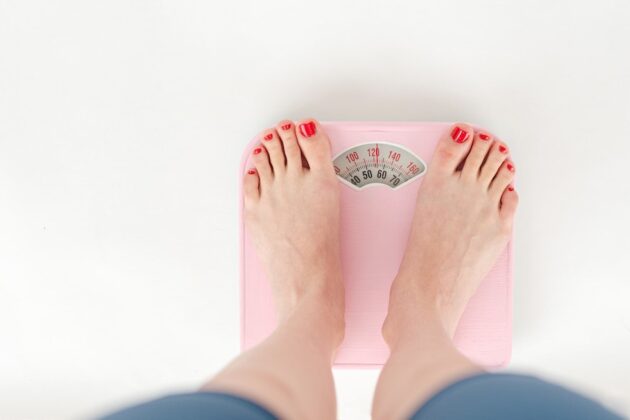Dealing With Painful Postpartum Gas: Causes & Relief
After surviving the many stresses of childbirth, you want to feel your best again as soon as possible. You will want to focus on things such as eating right and losing a safe amount of weight.
But how can you feel “normal” when your belly is still bloated and you’re expelling a lot of excess gas?
Painful gas is common after having a baby. It’s caused by several things happening at once. Hormonal changes, surgery, and episiotomy changes are all reasons why you may have postpartum gas.
Can dietary changes and tailored exercises help reduce gas, get your bowels moving, and get you back on a healthier track in the postpartum period? The short answer is yes.
Doing pelvic floor exercises and avoiding highly processed foods and foods high in fiber can help reduce postpartum gas.
This guide goes over the various causes of postpartum gas and how to find relief. We talk about what you can do to feel less bloated, crampy, or embarrassed by this normal postpartum problem. We’ll also cover when to seek medical attention and how a postpartum dietitian can support you.

Get Postpartum Support from a Registered Dietitian
Insurance Accepted: 90% of Zaya Care patients pay $0 for visits with an RD
What is postpartum gas?
Gas is a normal part of your gastrointestinal (GI) tract function. The bacteria in your colon (that belong there!) create gas as part of their metabolism. You expel around 450 milliliters of gas daily under normal circumstances. Most of it is odorless hydrogen gas.
More odorous methane gas is expelled by some of us. Normal individuals expel gas around 25 times daily and it is rarely a painful experience.
Gas becomes painful when it is excess or trapped. You expel more gas after meals and after eating certain high-fiber foods, such as cruciferous veggies (cabbage and broccoli), onions, beans, whole grains, fruits and fruit drinks, and soft drinks.
Trapped gas is also painful. When your bowels don’t move after surgery (cesarean section) or because of low-fiber diets or hormonal changes, gas becomes trapped within the small and large intestines, leading to painful cramping. Some women can have GI slowdown during or after pregnancy, leading to bloating and extreme fullness after meals.
Another gas-related issue after childbirth is the inability to have control over its expulsion. If your perineum is weakened by childbirth, or you had an episiotomy as part of the birth process, your pelvic floor or anal sphincter muscles may also be weakened. For a few days to weeks, you may unintentionally expel gas.
Is postpartum gas normal?
It’s entirely normal to produce and expel gas. Bacteria are an essential part of colon health. You need these symbiotic colon microbes to help you make certain vitamins (like B vitamins and vitamin K) and for the metabolism of carbohydrates to make short-chain fatty acids like butyrate, acetate, and propionate for use by your colonic cells, muscles, and liver, respectively. Bile acids and other substances get metabolized by these organisms.
During pregnancy, high progesterone levels slow your gut down. This can mean you have excess gas trapped within your colon. On the other hand, a hormone called motilin is reduced, which adds to the problem. Before you deliver, your progesterone levels drop dramatically, leading some to have diarrhea prior to labor.
Your hormones don’t completely normalize until several weeks after delivery. Up to a third of all women will have sluggish bowels, constipation, and gas buildup during pregnancy and after giving birth.
It often takes days or more for everything to begin to normalize after childbirth, regardless of whether you had a vaginal or cesarean birth. If you take narcotic pain relievers after a cesarean, your problem will often resolve once you no longer need them.
What causes postpartum gas?
Postpartum gas has many causes, most of which are transient and unavoidable. Once you know the various causes of your discomfort, you will be in a better position to counteract them and feel better more quickly.
Let’s look at the different reasons why you might have postpartum gas:
- Weakness of the pelvic floor. The pelvic floor is a group of muscles that hold the weight of your uterus, the baby, and your internal organs. These muscles extend from the vagina to the anus. They become extremely stretched out at the time of birth, sometimes going numb as the nerves to the muscles also get stretched to their limit. Numbness and weakness can lead to the inability to hold in gas. This means you might pass gas when you least expect it for a few days or weeks after delivery. Learn more about pelvic floor therapy here.
- Constipation. There are many reasons for constipation, including hormonal changes, medications, and diet. If you are constipated, gas will build up and may become uncomfortable.
- Episiotomy. An episiotomy is a cut made through the pelvic floor by the obstetrician at the time of birth. This area is sutured together but takes time to heal. Tears in the perineum also happen naturally but behave like episiotomies. The soreness alone means that those muscles don’t operate well, leading to constipation and the potential for gas.
- Hormonal changes. Progesterone and other hormones contribute to low GI motility during pregnancy and after you give birth. These hormones will return to their pre-pregnancy state, but it doesn’t happen overnight. Expect a gradual change in your hormone status over a few days to weeks after giving birth.
- Cesarean section. With a cesarean section, the manipulation of your internal organs means that they are very sluggish after giving birth. In addition, medications given to manage pain contribute to this sluggishness.
- Dietary changes. If your diet is full of roughage or plant fiber, you may have excess gas after giving birth. This is why partnering with a postpartum nutritionist might help (more on that later).
How long does postpartum gas last?
The length of time you have postpartum gas depends on the causes. If you had an uncomplicated vaginal delivery and no episiotomy, the gas is likely to last just a few days. Your muscles quickly spring back and begin to function with reduced pain by the end of the first week.
An episiotomy or tear can mean that the pelvic floor muscles heal more slowly. There is often more pain and hesitation to move the bowels, which contributes to gas and abdominal pain. Healing from this can take longer than a week but rarely longer than two to three weeks.
Cesarean section-related GI tract issues leading to gas and bloating often resolve within 10 days of giving birth. You will do better when you are taking less opioid pain medication and when the intestines recover from the shock of handling during surgery.
When should I seek attention for postpartum gas?
Most intestinal gas and farting resolve within three weeks of giving birth, regardless of the type of delivery you have. Certain situations, however, mean that you should seek medical attention for your condition:
- Persistent leakage of stool beyond 2 weeks postpartum
- Severe pain that interferes with daily living
- Nausea, vomiting, or fever
- Inability to have a bowel movement for more than 72 hours, or if you suddenly can’t pass gas at all
Most gas, including belching, farting, and occasional cramping, is normal and transient. Persistent symptoms may mean you need to see a doctor or nutritionist to have your condition more closely evaluated.
How to find relief from postpartum gas
There are things you can do to resolve your symptoms more quickly or gain some temporary relief until they pass normally:
- Pelvic floor exercises. You can wait until things have healed before beginning pelvic floor exercises. You can begin at home with Kegel exercises on the toilet to strengthen these important muscles. If this doesn’t provide lasting relief, you can see a therapist who specializes in pelvic floor therapy or in biofeedback to gain control over your pelvic floor muscles.
- Dietary changes. You may benefit from seeing a postpartum nutritionist to help determine which foods to eat and which to avoid. They can help relieve your gas problem through dietary remedies. The foods most likely to cause your problem are processed foods and those high in fiber. Foods with soluble fiber, like oatmeal, can be problematic, as can fructose (fruits), lactose (dairy), and sorbitol (chewing gum). Sodas are gaseous, so avoid these, too.
- Cesarean section remedies. Cesarean sections are surgeries, so you will naturally have pain that may interfere with your bowels. Pain medications may also be constipating. Be sure to walk around as tolerated to keep your bowels more active, and use ibuprofen rather than opioids when possible for pain. Warm packs on your belly will also help relax your bowels and relieve pain.

Get Postpartum Support from a Registered Dietitian
Insurance Accepted: 90% of Zaya Care patients pay $0 for visits with an RD
After surviving the many stresses of childbirth, you want to feel your best again as soon as possible. You will want to focus on things such as eating right and losing a safe amount of weight.
But how can you feel “normal” when your belly is still bloated and you’re expelling a lot of excess gas?
Painful gas is common after having a baby. It’s caused by several things happening at once. Hormonal changes, surgery, and episiotomy changes are all reasons why you may have postpartum gas.
Can dietary changes and tailored exercises help reduce gas, get your bowels moving, and get you back on a healthier track in the postpartum period? The short answer is yes.
Doing pelvic floor exercises and avoiding highly processed foods and foods high in fiber can help reduce postpartum gas.
This guide goes over the various causes of postpartum gas and how to find relief. We talk about what you can do to feel less bloated, crampy, or embarrassed by this normal postpartum problem. We’ll also cover when to seek medical attention and how a postpartum dietitian can support you.

Get Postpartum Support from a Registered Dietitian
Insurance Accepted: 90% of Zaya Care patients pay $0 for visits with an RD
What is postpartum gas?
Gas is a normal part of your gastrointestinal (GI) tract function. The bacteria in your colon (that belong there!) create gas as part of their metabolism. You expel around 450 milliliters of gas daily under normal circumstances. Most of it is odorless hydrogen gas.
More odorous methane gas is expelled by some of us. Normal individuals expel gas around 25 times daily and it is rarely a painful experience.
Gas becomes painful when it is excess or trapped. You expel more gas after meals and after eating certain high-fiber foods, such as cruciferous veggies (cabbage and broccoli), onions, beans, whole grains, fruits and fruit drinks, and soft drinks.
Trapped gas is also painful. When your bowels don’t move after surgery (cesarean section) or because of low-fiber diets or hormonal changes, gas becomes trapped within the small and large intestines, leading to painful cramping. Some women can have GI slowdown during or after pregnancy, leading to bloating and extreme fullness after meals.
Another gas-related issue after childbirth is the inability to have control over its expulsion. If your perineum is weakened by childbirth, or you had an episiotomy as part of the birth process, your pelvic floor or anal sphincter muscles may also be weakened. For a few days to weeks, you may unintentionally expel gas.
Is postpartum gas normal?
It’s entirely normal to produce and expel gas. Bacteria are an essential part of colon health. You need these symbiotic colon microbes to help you make certain vitamins (like B vitamins and vitamin K) and for the metabolism of carbohydrates to make short-chain fatty acids like butyrate, acetate, and propionate for use by your colonic cells, muscles, and liver, respectively. Bile acids and other substances get metabolized by these organisms.
During pregnancy, high progesterone levels slow your gut down. This can mean you have excess gas trapped within your colon. On the other hand, a hormone called motilin is reduced, which adds to the problem. Before you deliver, your progesterone levels drop dramatically, leading some to have diarrhea prior to labor.
Your hormones don’t completely normalize until several weeks after delivery. Up to a third of all women will have sluggish bowels, constipation, and gas buildup during pregnancy and after giving birth.
It often takes days or more for everything to begin to normalize after childbirth, regardless of whether you had a vaginal or cesarean birth. If you take narcotic pain relievers after a cesarean, your problem will often resolve once you no longer need them.
What causes postpartum gas?
Postpartum gas has many causes, most of which are transient and unavoidable. Once you know the various causes of your discomfort, you will be in a better position to counteract them and feel better more quickly.
Let’s look at the different reasons why you might have postpartum gas:
- Weakness of the pelvic floor. The pelvic floor is a group of muscles that hold the weight of your uterus, the baby, and your internal organs. These muscles extend from the vagina to the anus. They become extremely stretched out at the time of birth, sometimes going numb as the nerves to the muscles also get stretched to their limit. Numbness and weakness can lead to the inability to hold in gas. This means you might pass gas when you least expect it for a few days or weeks after delivery. Learn more about pelvic floor therapy here.
- Constipation. There are many reasons for constipation, including hormonal changes, medications, and diet. If you are constipated, gas will build up and may become uncomfortable.
- Episiotomy. An episiotomy is a cut made through the pelvic floor by the obstetrician at the time of birth. This area is sutured together but takes time to heal. Tears in the perineum also happen naturally but behave like episiotomies. The soreness alone means that those muscles don’t operate well, leading to constipation and the potential for gas.
- Hormonal changes. Progesterone and other hormones contribute to low GI motility during pregnancy and after you give birth. These hormones will return to their pre-pregnancy state, but it doesn’t happen overnight. Expect a gradual change in your hormone status over a few days to weeks after giving birth.
- Cesarean section. With a cesarean section, the manipulation of your internal organs means that they are very sluggish after giving birth. In addition, medications given to manage pain contribute to this sluggishness.
- Dietary changes. If your diet is full of roughage or plant fiber, you may have excess gas after giving birth. This is why partnering with a postpartum nutritionist might help (more on that later).
How long does postpartum gas last?
The length of time you have postpartum gas depends on the causes. If you had an uncomplicated vaginal delivery and no episiotomy, the gas is likely to last just a few days. Your muscles quickly spring back and begin to function with reduced pain by the end of the first week.
An episiotomy or tear can mean that the pelvic floor muscles heal more slowly. There is often more pain and hesitation to move the bowels, which contributes to gas and abdominal pain. Healing from this can take longer than a week but rarely longer than two to three weeks.
Cesarean section-related GI tract issues leading to gas and bloating often resolve within 10 days of giving birth. You will do better when you are taking less opioid pain medication and when the intestines recover from the shock of handling during surgery.
When should I seek attention for postpartum gas?
Most intestinal gas and farting resolve within three weeks of giving birth, regardless of the type of delivery you have. Certain situations, however, mean that you should seek medical attention for your condition:
- Persistent leakage of stool beyond 2 weeks postpartum
- Severe pain that interferes with daily living
- Nausea, vomiting, or fever
- Inability to have a bowel movement for more than 72 hours, or if you suddenly can’t pass gas at all
Most gas, including belching, farting, and occasional cramping, is normal and transient. Persistent symptoms may mean you need to see a doctor or nutritionist to have your condition more closely evaluated.
How to find relief from postpartum gas
There are things you can do to resolve your symptoms more quickly or gain some temporary relief until they pass normally:
- Pelvic floor exercises. You can wait until things have healed before beginning pelvic floor exercises. You can begin at home with Kegel exercises on the toilet to strengthen these important muscles. If this doesn’t provide lasting relief, you can see a therapist who specializes in pelvic floor therapy or in biofeedback to gain control over your pelvic floor muscles.
- Dietary changes. You may benefit from seeing a postpartum nutritionist to help determine which foods to eat and which to avoid. They can help relieve your gas problem through dietary remedies. The foods most likely to cause your problem are processed foods and those high in fiber. Foods with soluble fiber, like oatmeal, can be problematic, as can fructose (fruits), lactose (dairy), and sorbitol (chewing gum). Sodas are gaseous, so avoid these, too.
- Cesarean section remedies. Cesarean sections are surgeries, so you will naturally have pain that may interfere with your bowels. Pain medications may also be constipating. Be sure to walk around as tolerated to keep your bowels more active, and use ibuprofen rather than opioids when possible for pain. Warm packs on your belly will also help relax your bowels and relieve pain.

Get Postpartum Support from a Registered Dietitian
Insurance Accepted: 90% of Zaya Care patients pay $0 for visits with an RD
















